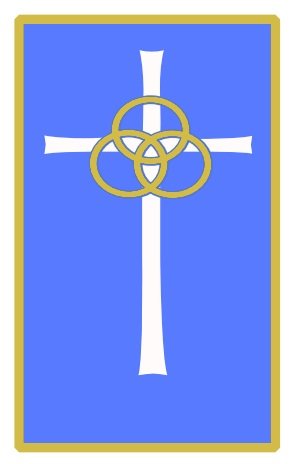Trinity Sunday
On this important Sunday in the Church year, we considered the doctrine of the Trinity, specifically how to read 1 John 5:7. We thought about what an important role scribes have played down through the ages as they scrupulously copied Holy Scripture so that our manuscripts today are virtually identical to those of the first century. This particular verse, though, poses some different possibilities. The King James Version uses Erasmus' and reads: "For there are three that bear record in heaven, the Father, the Word, and the Holy Ghost: and these there are one." However, the New International Version goes back to earlier manuscripts and chose more literally to read: "For there are three that testify: the Spirit, the water and the blood; and the three are in agreement." How do reconcile the discrepancy? Can we reconcile them?
Our witness to non-Christians might be made easier if we had texts that clearly spell out the Trinity, but on the other hand, we know that is is a mystery whose nature is made manifest only in our experience. It is a holy mystery that we accept and understand only by faith. In other words, we could never have enough texts to explain the Trinity in any logically satisfying way.
Our Call to Worship included two verses from Prudentius' "Of the Father's Love Begotten" (usually sung, appropriately enough, to the tune "Divinum Mysterium"):
"Christ, to Thee with God the Father, And, O Holy Ghost, to Thee,
Hymn and chant and high thanksgiving And unwearied praises be: Honor, glory, and dominion, And eternal victory, Evermore and evermore!"
